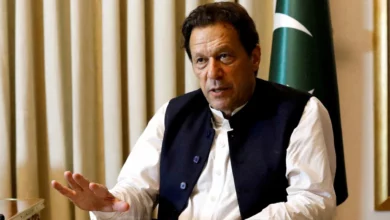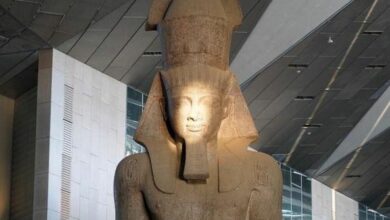On 11 February, when revelers were shooting fireworks in Tahrir Square, Swiss banking officials were pinpointing accounts that could belong to the former president, beginning the process that many hope will lead to the restitution of ill-gotten funds held overseas.
On Thursday Swiss Ambassador Dominik Furgler sat with Al-Masry Al-Youm at the embassy to talk about the procedure and difficulties behind the money-recovery process that has garnered so much attention in Egypt.
The Swiss government says it froze approximately US$503 million in funds suspected of belonging to former President Hosni Mubarak and 13 other figures, including family members such as his wife and two sons, and close political allies such as former Interior Minister Habib al-Adly and former Trade Minister Rachid Mohamed Rachid.
Swiss officials have not disclosed details of how much of each person’s money was frozen.
Other governments, such as Britain, France and the US, have announced efforts to look for Mubarak's and other regime figure’s money within their own borders, but none have been as proactive as the Swiss, who sent a team of experts and government officials to engage in dialogue with Egyptian officials. The US, largely believed to be another place where Mubarak stashed money, has not frozen any assets.
Since Mubarak left office, speculation regarding the extent of his assets has snowballed. Figures as large as (an unsubstantiated) $US700 billion have been thrown around, the fodder for street-side political forums and taxicab debates about his fortune.
Freezing the assets early was a key step, Furgler said, because it didn’t give Mubarak and the 13 others a chance to move their funds around, and it gave the Egyptian authorities time to perform a thorough examination and trial.
"Swiss laws gave the government the possibility to freeze the assets of a group of persons without being asked from outside,” he said. “This is quite unique.”
Typically, the country where the money originated must file an official request before another country can put accounts on ice.
Furgler claimed that Switzerland is the most cooperative state when it comes to tracking down and returning laundered or illegally obtained money, because they do not want their renowned banking system to be abused. With strong secrecy laws, little to no taxation, and a reputation for being politically neutral and stable, Switzerland has long been one of the safest places to store ill-gotten money. The country is working hard to change its image, he said.
“We have had, for a long time, this reputation as a financial haven for illegally acquired money,” he said. "We still have it, but we really want to get rid of it. We do not want illegally acquired money.”
Switzerland now keeps a close watch on politically exposed persons, keeping a list of world leaders, politicians who might have access to public funds. It has emerged as one of most reliable countries for returning illicit funds, according to the Swiss government. Furgler said Switzerland has returned a total of US$1.7 billion of stolen funds to countries in the past 15 years, more than any financial center of a similar size.
The World Bank estimates that during that same period, a total of US$5 billion has been paid back to countries from which corrupt government officials stole.
Most notably, Switzerland repatriated US$700 million to Nigeria after a 2005 case, following the 1998 death of military dictator Sani Abacha. Money was also returned to the Philippines, reinstituted after former dictator Ferdinand Marcos was removed in 1986. Switzerland has also returned illegally obtained money to Haiti, Angola and Kazakhstan.
The money was restored to Nigeria within a few years, a very quick period, Furgler said, because Nigerian courts did a good job proving that the money was obtained illegally.
Any restitution in Egypt, he said, will also be contingent on mutual assistance between Egypt and Switzerland. But first, Egypt must provide credible evidence for suspicion.
There will need to be a full legal trial in Cairo, and only after an Egyptian judge rules the money was obtained illegally will the verdict be passed along to Switzerland. There, Swiss judges will review the case and if they approve it, the process of sending money back will begin. It can be a lengthy operation with many opportunities for the accused party to appeal, both in Egypt and Switzerland.
It is important that Egyptian courts maintain judicial integrity throughout the case, Furgler said, and is not subject to political whims. A Swiss judge, he added, will be checking for “the rule of law.” And the crime must also be considered a crime under the penal code in Switzerland. Special courts, in which some pro-change activists would like to see Mubarak and his cronies tried, would complicate this process and would likely hold less judicial credibility.
"I think what we will want from the [Egyptian] judge, is to be convinced that this was not a purely political judgment,” he said. “After revolutions and so on, things can be purely politically motivated."
But if both courts find the parties guilty of corruption, there’s no doubt money will come back to Egypt’s shores, Furgler said. But it won’t be easy.
"The main work has to be done here, on this side,” he said. “But I'm quite confident, yes, that one day money will flow back."
The exact amount of money will probably be not as outlandish as US$700 billion, he emphasized, and the restitution could take anywhere from one to 20 years. In Nigeria’s case, it took five years. But the case of Congo’s former dictator Mobutu Sese Seko, widely known to have embezzled large amounts, tells another cautionary tale. Swiss officials worked on the case for 12 years but were forced to give up due to the Congo’s government “lack of cooperation,” according to a Swiss government press release.
Furgler acknowledges that hopes are high. “We created high expectations,” he said. “One of my tasks now is to regularly explain to the [Egyptian] public why it takes time, it is complex, why the sums might not be that high.”
He said many Egyptians ask why the money has not arrived, and why corruption needs to be proven.
“For them it’s obvious,” he said. “But when they ask that the rule of law be respected, this also has to apply to Mr. Mubarak.”
Moreover, there are difficulties inherent in this sort of financial detective work, even with the top-rate technology and expertise Swiss experts have at their disposal. Laundered illegal money is notoriously difficult to trace.
"I can't imagine that we will find a bank account under the name of Hosni Mubarak,” said Furgler.




